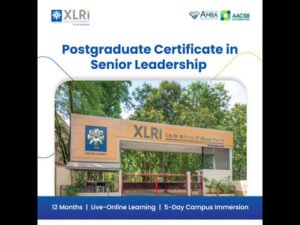Table of Contents
Last updated on August 14th, 2024 at 01:43 pm
The weight of expectation sits heavy on the shoulders of any leader. Today’s business environment is highly dynamic, demanding agility, foresight and strategic decisions. New technologies emerge seemingly overnight, customer expectations are constantly evolving, and the pressure to stay ahead of the competition is relentless.
In this ever-changing landscape, what does it take to be a successful leader? In this article, we will discuss important business challenges with real-world examples and case studies. Studying and analysing any solid business case study for a specific industry or business challenge can help you become a more holistic leader. This article will also provide you with the right tips, tools and insights for effective leadership development.
Leading in the Evolving Landscape of Business Challenges
Leaders today are constantly bombarded with change. The business world is a complex landscape shaped by several key trends. Let us first discuss the essential four trends in today’s time.
Technological Advancements (AI, Automation)
Artificial intelligence (AI) and automation are transforming industries at an unprecedented pace. From streamlining manufacturing processes to personalising customer experiences, AI is impacting every aspect of business. To thrive in this new environment, leaders need to embrace lifelong leadership development and stay updated on emerging technologies.
Actionable Tip for Leaders: Encourage leaders to attend industry conferences, participate in online courses, and create a culture of knowledge sharing within their teams.
Disruptive Innovation
Disruptive innovation can reshape entire industries overnight. Think about how ride-sharing companies revolutionised the transportation sector. Leaders must foster a culture of innovation within their teams, encouraging experimentation and a willingness to take calculated risks.
Actionable Tip for Leaders: Implement innovation programs that reward creative thinking and support teams in testing and iterating on new ideas.
Evolving Customer Expectations
Today’s customers are more empowered than ever before. They have access to a wealth of information and expect personalised experiences. Leaders need to adapt their strategies to meet these ever-changing customer demands.
Actionable Tip for Leaders: Prioritise customer-centricity by gathering customer feedback regularly and using data analytics to understand their needs and preferences.
Global Competition
The global marketplace presents both challenges and opportunities. Leaders need to cultivate a global mindset and build strong partnerships across borders to succeed on a worldwide scale.
Actionable Tip for Leaders: Encourage leaders to develop a diverse workforce with a global perspective and explore opportunities for international collaboration.
Common Real-World Business Challenges Leaders Face
Every leader, regardless of industry, faces a common set of challenges on the battlefield of business. By addressing these common challenges head-on, leaders can build resilient and successful organisations. Here are some of the most prominent challenges:
Talent Acquisition and Retention
The war for talent is real. Attracting and keeping top performers is crucial for success.
Actionable Tips:
- Develop a strong employer brand that highlights your company culture and values.
- Offer competitive salaries and benefits packages.
- Invest in employee development and training programs.
- Foster a culture of recognition and appreciation.
Ethical Challenges in Business
Ethical challenges in business are quite common as business decisions can have a significant impact on society and the environment. Leaders need to be mindful of ethical considerations when making choices.
Actionable Tips:
- Develop a strong code of ethics for your organisation.
- Foster a culture of integrity and transparency.
- Train your employees on ethical decision-making.
- Consider the potential impact of your business decisions on all stakeholders.
Data-Driven Decision Making
In today’s information age, data is king. Leaders need to be able to extract insights from data to inform their strategic decision-making.
Actionable Tips:
- Invest in data analytics tools and training for your team.
- Learn to ask the right questions of your data.
- Communicate data-driven insights effectively to stakeholders.
- Use data to measure progress and track key performance indicators (KPIs).
Change Management
Change is inevitable in business, but navigating it effectively can be a challenge. Leaders need to be able to lead their teams through periods of transformation.
Actionable Tips:
- Clearly communicate the rationale for change and involve your team in the process.
- Provide support and resources to help employees adapt to change.
- Celebrate successes along the way and acknowledge challenges.
- Be transparent and open to feedback.
Innovation and Adaptability
The business landscape is constantly evolving. Leaders need to be innovative and adaptable to stay ahead of the curve.
Actionable Tips:
- Encourage a culture of creativity and experimentation.
- Allocate resources for research and development.
- Be open to new ideas and willing to take calculated risks.
- Monitor industry trends and competitor activity.
A solid leadership development program can help you deal with all the above challenges. A holistic senior leadership program will accelerate your leadership development and enhance your strategic decision-making skills.
Industry-Specific Case Studies
business case study
Learning from the successes and failures of others through an in-detail business case study is invaluable in leadership development. Here, we delve into real-world challenges tackled by leaders across different industries:
Case Study 1: Retail (Company: Acme Retail)
Challenge: In a crowded retail landscape, Acme Retail struggled to differentiate itself and connect with customers on a personal level.
Leader’s Approach: The CEO implemented a data-driven strategy, analysing customer purchase history and demographics. This allowed them to personalise marketing campaigns, product recommendations, and in-store experiences.
Key Takeaways: By leveraging data analytics, Acme Retail was able to create a more customer-centric experience, boosting customer satisfaction and loyalty.
Case Study 2: Manufacturing (Company: Global Gears)
Challenge: Global Gears, a manufacturer of industrial parts, faced declining profits due to production inefficiencies.
Leader’s Approach: The COO adopted lean manufacturing principles, focusing on eliminating waste and streamlining processes. This involved optimising workflows, reducing inventory levels, and empowering employees to identify and address inefficiencies.
Key Takeaways: By embracing lean methodologies, Global Gears significantly improved production efficiency, reduced costs, and increased profitability.
Case Study 3: Healthcare (Company: Wellspring Health)
Challenge: Wellspring Health, a large healthcare provider, faced administrative burdens and delays in patient care due to outdated processes.
Leader’s Approach: The CEO invested in innovative technologies like electronic health records (EHR) and telehealth platforms. These solutions streamlined administrative tasks, improved data access, and enabled remote consultations, enhancing patient care.
Key Takeaways: Wellspring Health’s embrace of technology resulted in improved operational efficiency, better communication with patients, and ultimately, higher quality care.
These types of real-world examples are useful for leadership development as leaders can gain valuable insights and inspiration to address their own challenges and drive success in their respective industries.
Analyse the above three case studies through the lens of your own leadership challenges. Consider:
- Can you identify similar challenges within your organisation?
- What elements of these leaders’ approaches could be adapted to your context?
- How can you leverage these learnings to develop your own strategic solutions?

Building Your Leadership Development Toolkit
The most effective leaders are lifelong learners. By actively going through leadership development and developing your leadership toolkit, you’ll be well-equipped to deal with any challenge and lead your team to success. Here, we explore resources and strategies to help you with leadership development to conquer any business challenge:
Building Your Resource Arsenal
- Articles: Stay informed on the latest leadership trends with articles from reputable publications like Harvard Business Review or Forbes.
- Books: Delve deeper with leadership development classics like “Good to Great” by Jim Collins or “Crucial Conversations” by Kerry Patterson et al.
- Online Courses & Workshops: Enhance your skillset with online courses or in-person workshops on specific leadership topics like communication or conflict resolution.
Actionable Strategies
Put theory into practice with these key strategies for leadership development:
- Communication Mastery: Effective communication is the cornerstone of leadership. Hone your skills in active listening, clear and concise communication, and tailoring messages to your audience.
Action Tip: Practice active listening by summarising key points and asking clarifying questions.
- Building a Strong Team Culture: A team is only as strong as its culture. Foster a culture of trust, collaboration, and open communication.
Action Tip: Recognise and reward team achievements and encourage open communication by holding regular team meetings.
Embrace the Growth Mindset
Leaders who believe in their ability to learn and grow will inspire the same in their teams. Embrace challenges as opportunities to learn and continuously seek out new knowledge for effective leadership development.
Action Tip: Step outside your comfort zone by taking on new projects or learning a new skill.
Final Tips
The business landscape is constantly evolving, presenting leaders with a unique set of challenges. From dealing with technological disruptions to fostering a culture of innovation, leaders need to be adaptable, data-driven, and ethical.
Leaders must be agile and adaptable to thrive in a constantly changing environment. Also, in this evolving landscape, data-driven decision-making is crucial for effective strategy development. Finally, ethical considerations should be at the forefront of all business decisions.
Fostering a culture of innovation and continuous learning is key to staying ahead of the curve. If you are interested in advanced leadership development, you can enrol in Imarticus Learning’s Postgraduate Certificate in Senior Leadership. This leadership development program is offered in collaboration with XLRI and will open up many more opportunities for you as a senior leader.
Frequently Asked Questions
- What can I learn from case studies?
Case studies provide real-world examples of how businesses tackled challenges and achieved success. They offer insights into specific strategies, tools, and decision-making processes.
- How can industry insights benefit my business?
By understanding trends and challenges within your industry, you can identify opportunities for improvement, learn from the experiences of others, and stay ahead of the curve.
- Are case studies relevant to my specific role?
Case studies can be a goldmine of practical knowledge, regardless of your position. They showcase problem-solving approaches, communication strategies, and successful decision-making processes that can be applied across different roles within a company.
- Where can I find industry insights and case studies?
Many resources offer valuable industry insights and case studies. Trade publications, industry association websites, and even competitor blogs can be excellent sources of information. Additionally, some consulting firms and research organisations publish industry reports that provide in-depth analysis of specific sectors.

